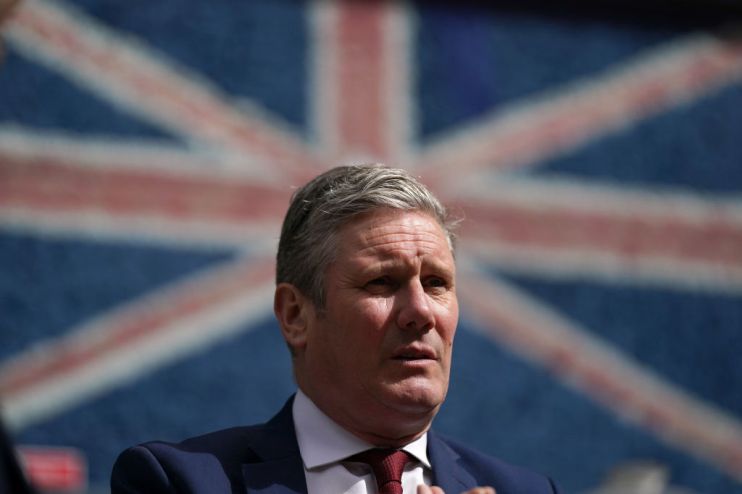Negotiation has failed: the defence Keir should have made for rail strikes

The rail strikes have finished, for the moment, and we can return to normal after the disruption. But we are promised a “summer of discontent”, with teachers and barristers next up to withdraw their labour. Disruption in public-facing services seems to be emerging as 2022’s leitmotif.
The government responded to the transport strike by simultaneously edging away from the dispute and pledging tougher legislation to allow agency workers to backfill positions left unfilled. There is a whiff of Thatcherism in the air.
The Labour Party, however, seemed more confused. Sir Keir Starmer ducked and dodged on whether he supported the strike, and forbade frontbenchers from attending pickets: several, including his deputy, Angela Rayner, and one of his brighter stars, Wes Streeting, ignored him.
Leaving policy aside for a moment, the Opposition’s flustered response was frustrating because the strike was an opportunity for Labour to make a bold and decisive mood, capture the narrative and show the public a bit of policy ankle. The defence Starmer needed to be making was not difficult. But he floundered. It could have gone something like this:
“Let’s start with a basic truth: a strike means negotiation has failed. I wish these strikes weren’t happening, and I have every sympathy for people whose lives will be disrupted over the next few days as a result. I particularly feel for those who can’t just work from home, who have to battle to work, and who will have a miserable time as a result.
But let’s look at another truth. The rail workers in the RMT don’t want to go on strike. No one who has a job in this precarious economy wants to sit at home and go unpaid. And another: these aren’t the handsomely paid train drivers you hear about in the media. The people going out on strike are people who are just getting by. They’re cleaners, maintenance workers, catering staff. And right now, they’re struggling.
The government is presiding over a cost of living crisis. Inflation is expected to hit 11 per cent in the near future. And what were the workers offered? A pay rise of 2 per cent, with another 1 per cent further down the line. That’s not a pay rise, that’s a real-terms pay cut. These aren’t militants or agitators, trying to break society. They’re just trying to keep their heads above water and earn a living.
Meanwhile the government stands back and says it’s not involved in the dispute, that it’s between Network Rail and the RMT. But look at the outcomes the bosses are hoping for: lower wages, fewer jobs, budget cuts. You don’t have to be a conspiracy theorist to think this is the sort of agenda the Tory government would welcome.
Of course I support negotiation. We should always talk through disputes until we’re hoarse if there’s any hope of a settlement that all parties can support. I spent 25 years practising law, and I know that a confrontation, however dramatic for observers, represents the failure of negotiation. But there comes a point when the options become stark: back down, or stand up for your rights. That’s what the RMT is doing.
The media have been desperate to ask me: do you support the strikes? They think it’s a trick question, but it’s not. Let me be very clear: I didn’t become leader of the Labour Party to condemn trade unions fighting for their members’ interests. We were founded in 1900 to speak for those who had no voice: for workers who had no rights and poor people who had no representation. And that remains our guiding principle to this day.
If we’re going to rebuild the country after the pandemic, we need an economy that works for everyone. We need to be united rather than divided, and we need everyone to feel that they have a stake in rebuilding the UK.
Yes, I support the striking workers. I stand with them and stand for them getting a fair deal. They don’t want charity, and they’re not banks, so they know there’s no bailout for them. All they want is a wage which isn’t eaten away by the cost of living crisis, the ability to earn enough to support themselves and their families. I stand with them and I’ll stand with them on the picket line as leader of the Labour Party. And I’m proud to do it.”